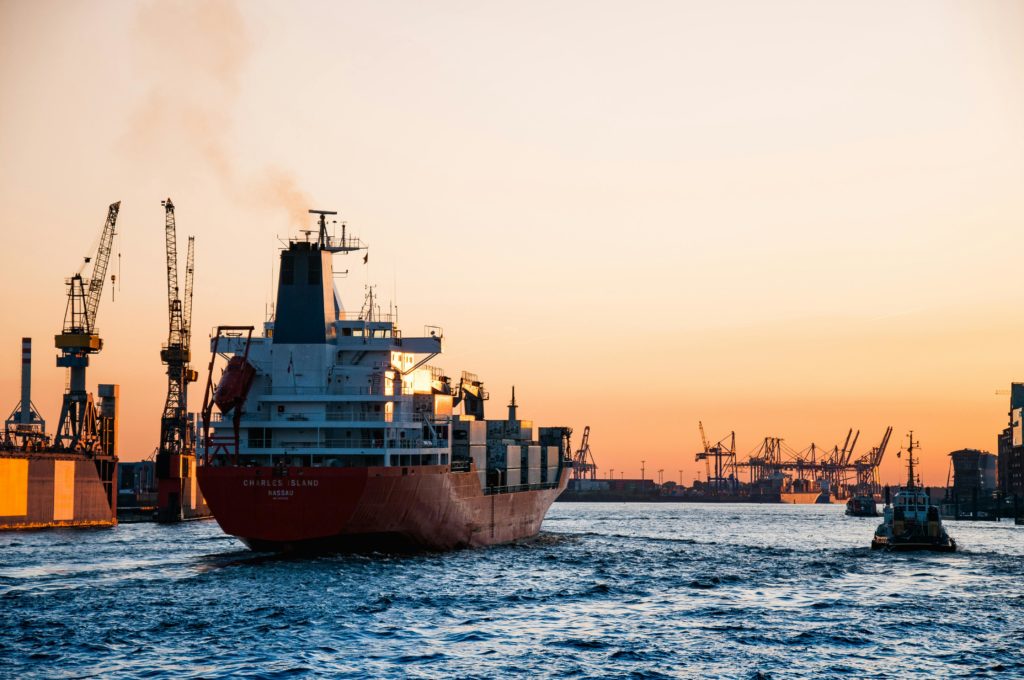
Efficient global transportation is a cornerstone of our interconnected, globalized world. International trade is more prominent than ever, with approximately 80% of global goods transported by the shipping industry. However, this vital sector comes with a significant environmental impact. According to the International Maritime Organization (IMO), maritime transport contributes around 940 million tons of carbon emissions annually.
Despite its essential role, the shipping industry is considered one of the most challenging sectors to decarbonize. Recognizing its impact on global emissions, the IMO has set an ambitious target: to reduce greenhouse gas emissions from shipping by 40% by 2030 compared to 2008 levels, and carbon neutrality by 2050.
Meeting this goal will require scalable, efficient, and immediately deployable solutions—among which sustainable biofuels show great promise. Ethanol, in particular, emerges as a viable alternative fuel. It is not only cost-effective and widely available but also capable of significantly cutting emissions. When used as a marine fuel, ethanol can reduce CO₂ emissions by up to 76% (well-to-wake), sulfur oxides (SOₓ) by 95%, and nitrogen oxides (NOₓ) by 40%.
Brazil’s long-standing experience in ethanol production and use positions the country as a model—and a key partner—in helping the maritime sector achieve its decarbonization goals.
Brazil is ready to set sail as a sustainable marine biofuel powerhouse
Brazil is currently the world’s second-largest producer of ethanol and continues to expand its production capacity sustainably. During the 2024/25 harvest season, Brazil produced 37.3 billion liters of ethanol, underscoring the bioenergy sector’s capacity to support increasing global demand.
Sugarcane—the primary feedstock for ethanol in Brazil—occupies around 10 million hectares, which is only about 1.1% of Brazil’s total land area. Importantly, much of this cultivation occurs on previously degraded and converted land, not causing deforestation or affecting food production. In fact, sugarcane expansion has contributed to the removal of o CO₂ through improved land use practices, like no-till technique, biological pest control and fertigation—not to mention the additional climate benefit of substituting gasoline in road transportation.
Corn-based ethanol is produced predominantly from Brazil’s second corn crop, grown in rotation with soybeans during the same agricultural season and on the same land. This means no additional land is needed to expand production. In the 2024/25 season alone, Brazil produced 8.2 billion liters of corn ethanol.
Most of Brazil’s corn is still allocated to exports (34%) and domestic animal feed (41%), leaving ample room for ethanol production to grow without disrupting other agricultural sectors. A recent study published in Nature Sustainability found that increasing corn ethanol production by 5 billion liters would require only 600,000 hectares of land—entirely within existing soybean-growing areas.
Environmental Safeguards and Land Potential
Brazil also boasts impressive environmental stewardship. Roughly 61% of its territory remains covered by native vegetation, including both public and private protected areas. In addition, over 8.8 million hectares of degraded land remain available and suitable for agricultural expansion. Moreover, all ethanol produced in Brazil must comply with strict zero-deforestation guidelines, in accordance with the RenovaBio policy established in 2017.
A Strategic Opportunity for Global Shipping
With its vast production capacity, sustainable land use practices and environmental safeguards, Brazil is well-positioned to become a key global supplier of sustainable maritime biofuels. As the shipping industry looks to biofuels like ethanol to meet emission reduction targets, Brazil offers not just supply, but a proven model of sustainable, scalable production.


